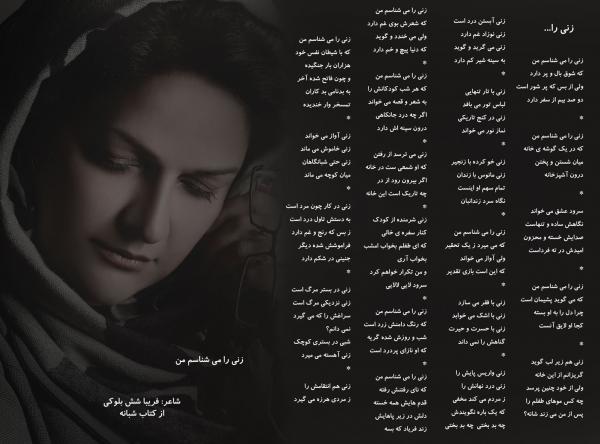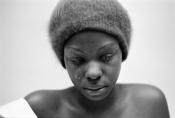Peronospora maledetta
che mi vuoi infestar la vigna
maledetta maledetta maledetta
maledetta maledetta maledetta
Ma la mia vigna
è molto arcigna
e la sua radice molto codigna
maledetta maledetta maledetta
maledetta maledetta maledetta
Ha resistito alla tempesta
al sole che spaccava la testa
maledetta maledetta maledetta
maledetta maledetta maledetta
Ha resistito come un leone
alle ghiacciate fuori stagione
maledetta maledetta maledetta
maledetta maledetta maledetta
Ha resistito alle malelingue
sparlan di tutto e non sanno niente
maledetta maledetta maledetta
maledetta maledetta maledetta
lega le vigne col sangue
e non si toglie
e come per moda
Bocca a bocca
C'è chi crede di possedere la libertà delle persone
Perché non vai a casa loro
e troverai molti ristoro
maledetta maledetta maledetta
maledetta maledetta maledetta
E tra le loro idee di legno
immagina che ci sia un vitigno
che di soprusi a questo mondo
non se ne può più
E tra le loro idee di legno
immagina che ci sia un vitigno
che di soprusi a questo mondo
non se ne può più
che mi vuoi infestar la vigna
maledetta maledetta maledetta
maledetta maledetta maledetta
Ma la mia vigna
è molto arcigna
e la sua radice molto codigna
maledetta maledetta maledetta
maledetta maledetta maledetta
Ha resistito alla tempesta
al sole che spaccava la testa
maledetta maledetta maledetta
maledetta maledetta maledetta
Ha resistito come un leone
alle ghiacciate fuori stagione
maledetta maledetta maledetta
maledetta maledetta maledetta
Ha resistito alle malelingue
sparlan di tutto e non sanno niente
maledetta maledetta maledetta
maledetta maledetta maledetta
lega le vigne col sangue
e non si toglie
e come per moda
Bocca a bocca
C'è chi crede di possedere la libertà delle persone
Perché non vai a casa loro
e troverai molti ristoro
maledetta maledetta maledetta
maledetta maledetta maledetta
E tra le loro idee di legno
immagina che ci sia un vitigno
che di soprusi a questo mondo
non se ne può più
E tra le loro idee di legno
immagina che ci sia un vitigno
che di soprusi a questo mondo
non se ne può più
envoyé par Dq82 - 29/11/2020 - 17:58
Langue: persan
La canzone termina con una poesia della poetessa iraniana Simin Behbahani recitata da Ala Azadkia

N.B. ho difficoltà a trovare il testo integrale, a capire se questo sia il testo integrale e quale parte venga recitata nella canzone

N.B. ho difficoltà a trovare il testo integrale, a capire se questo sia il testo integrale e quale parte venga recitata nella canzone
زنی را میشناسم من (*)
که در یک گوشهی خانه
میان شستن و پختن
درون آشپزخانه
سرود عشق میخواند
نگاهش ساده و تنهاست
صدایش خسته و محزون
امیدش در ته فرداست
زنی را میشناسم من
که میگوید پشیمان است
چرا دل را به او بسته
کجا او لایق آنست
زنی هم زیر لب گوید
گریزانم از این خانه
ولی از خود چنین پرسد:
چه کس موهای طفلم را
پس از من میزند شانه؟
زنی آبستن درد است
زنی نوزاد غم دارد
زنی با تار تنهایی
لباس تور میبافد
زنی در کنج تاریکی
نماز نور میخواند
زنی خو کرده با زنجیر
زنی مأنوس با زندان
تمام سهم او اینست
نگاه سرد زندانبان
زنی را میشناسم من...
زنی را میشناسم من
که میمیرد ز یک تحقیر
ولی آواز میخواند
که اینست بازیِ تقدیر
زنی با فقر میسازد
زنی با اشک میخوابد
زنی با حسرت و حیرت
گناهش را نمیداند
زنی واریس پایش را
زنی درد نهانش را
ز مردم میکند مخفی
که یکباره نگویندش
چه بد بختی، چه بد بختی
که در یک گوشهی خانه
میان شستن و پختن
درون آشپزخانه
سرود عشق میخواند
نگاهش ساده و تنهاست
صدایش خسته و محزون
امیدش در ته فرداست
زنی را میشناسم من
که میگوید پشیمان است
چرا دل را به او بسته
کجا او لایق آنست
زنی هم زیر لب گوید
گریزانم از این خانه
ولی از خود چنین پرسد:
چه کس موهای طفلم را
پس از من میزند شانه؟
زنی آبستن درد است
زنی نوزاد غم دارد
زنی با تار تنهایی
لباس تور میبافد
زنی در کنج تاریکی
نماز نور میخواند
زنی خو کرده با زنجیر
زنی مأنوس با زندان
تمام سهم او اینست
نگاه سرد زندانبان
زنی را میشناسم من...
زنی را میشناسم من
که میمیرد ز یک تحقیر
ولی آواز میخواند
که اینست بازیِ تقدیر
زنی با فقر میسازد
زنی با اشک میخوابد
زنی با حسرت و حیرت
گناهش را نمیداند
زنی واریس پایش را
زنی درد نهانش را
ز مردم میکند مخفی
که یکباره نگویندش
چه بد بختی، چه بد بختی
(*) I know a woman
Who in a corner of the house
In between washing and cooking
In the kitchen
Sings the hymn of love
Her eyes are simple and lonely
Her voice tired and sad
Her hope lying in the bottom of tomorrow
I know a woman
Who says she regrets
For having lost her heart to him
Where was he worthy of it
A woman whispering
I like to run away from this house
But then asks herself:
Who would comb my kid’s hairs
After me?
A woman who is pregnant with pain
A woman with a newborn of grief
A woman weaving a dress of lace
With the warps and woofs of loneliness
A woman in a dark corner
Performing the prayer of Light
A woman used to chain
A woman familiar with jail
The cold look of warder
Is all her share
I know a woman…
I know a woman
Who withers with humiliation
Yet, sings the song
This is the game of fate
A woman gets used to poverty
A woman sleeps with tear
A woman with envy and awe
Not knowing what she has done wrong
A woman hides
Her varicose feet
A woman hides
Her buried pain
From the eyes of people
Not to hear from them all
You are so hopeless, helpless
I know a woman
Whose poem smells of grief
But laughs and says:
The world is always full of
Twists and turns, ups and downs
I know a woman
Who every night
Puts her children to bed
With the lullaby of fables and tales
Even though bearing in her own chest
An old agonizing ache
A woman fears leaving
For she is the house‘ candle
What a dark house it turns into
If she walks out of the door
A woman ashamed
Of her empty table
Telling her hungry child
Sleep my dear baby, sleep
While I sing you
Your favorite lullaby
I know a woman
Whose skirt is yellow
Her days and nights passing in tears
For she is barren, pregnant with pain
I know a woman
Not having any more force to go
All her steps tired
Her heart screaming
Under her feet
Enough is enough
I know a woman who has wrestled
With the devil of her ego
More than hundred thousands
And because at last she came out victor
She laughed and mocked
The infamy of vicious people
A woman sings
A woman keeps silent
A woman even spends the night
In the safe haven of an alleyway
A woman toils like a man
Having painful blisters on her hand
She has forgotten
She is pregnant
A woman in a dying bed
A woman near to death
Who will remember her
I don’t know?
One night on a small bed
A woman will quietly die
And another woman would
Take her revenge
From a prostitute-like man
I know a woman
A woman…
Saturday Khordad 8 1389 (May 29 2010)
Translation from Farsi by Roya Monajem, Tehran
Who in a corner of the house
In between washing and cooking
In the kitchen
Sings the hymn of love
Her eyes are simple and lonely
Her voice tired and sad
Her hope lying in the bottom of tomorrow
I know a woman
Who says she regrets
For having lost her heart to him
Where was he worthy of it
A woman whispering
I like to run away from this house
But then asks herself:
Who would comb my kid’s hairs
After me?
A woman who is pregnant with pain
A woman with a newborn of grief
A woman weaving a dress of lace
With the warps and woofs of loneliness
A woman in a dark corner
Performing the prayer of Light
A woman used to chain
A woman familiar with jail
The cold look of warder
Is all her share
I know a woman…
I know a woman
Who withers with humiliation
Yet, sings the song
This is the game of fate
A woman gets used to poverty
A woman sleeps with tear
A woman with envy and awe
Not knowing what she has done wrong
A woman hides
Her varicose feet
A woman hides
Her buried pain
From the eyes of people
Not to hear from them all
You are so hopeless, helpless
I know a woman
Whose poem smells of grief
But laughs and says:
The world is always full of
Twists and turns, ups and downs
I know a woman
Who every night
Puts her children to bed
With the lullaby of fables and tales
Even though bearing in her own chest
An old agonizing ache
A woman fears leaving
For she is the house‘ candle
What a dark house it turns into
If she walks out of the door
A woman ashamed
Of her empty table
Telling her hungry child
Sleep my dear baby, sleep
While I sing you
Your favorite lullaby
I know a woman
Whose skirt is yellow
Her days and nights passing in tears
For she is barren, pregnant with pain
I know a woman
Not having any more force to go
All her steps tired
Her heart screaming
Under her feet
Enough is enough
I know a woman who has wrestled
With the devil of her ego
More than hundred thousands
And because at last she came out victor
She laughed and mocked
The infamy of vicious people
A woman sings
A woman keeps silent
A woman even spends the night
In the safe haven of an alleyway
A woman toils like a man
Having painful blisters on her hand
She has forgotten
She is pregnant
A woman in a dying bed
A woman near to death
Who will remember her
I don’t know?
One night on a small bed
A woman will quietly die
And another woman would
Take her revenge
From a prostitute-like man
I know a woman
A woman…
Saturday Khordad 8 1389 (May 29 2010)
Translation from Farsi by Roya Monajem, Tehran
envoyé par Dq82 - 29/11/2020 - 18:16
×
![]()









Mé, Pék e Barba
Vincanti
Un concept album sul vino, che però è il pretesto per parlare di altre cose
“Peronospora” è un testo fortemente allegorico e, ricordando che la peronospora, originaria dell’America, è stata accidentalmente introdotta in Europa verso la fine dell’800, non ho potuto a meno di pensarlo rivolto, tra luci e soprattutto ombre, al cosiddetto “secolo americano”… Cos’è la dunque la peronospora di questo testo e perché si conclude con i versi della poetessa iraniana Simin Behbahani?
Mé, Pék e Barba
La peronospora, malattia fungina della vite, è esattamente un’allegoria sulla fragilità della vita e su come spesso si rimanga in balia di situazioni che determinano gravi ripercussioni sull’esistenza dimenticando di quanto siano necessari per l’uomo il sole, il vento, l’aria, in grado di potere, come per la peronospora, asciugare l’umidità ed evitare che questo devastante fungo si diffonda e determinando la perdita del raccolto.
Molti confondono il titolo e dicono o scrivono “Peronospera”. In effetti la peronospora della vite, quando colpisce, non lascia speranze. Il testo della poetessa iraniana racconta dell’importanza del ruolo della donna. Abbiamo semplicemente voluto creare un collegamento per far emergere come per la donna, in molti occasioni, l’uomo sia la vera peronspora.
kultunderground